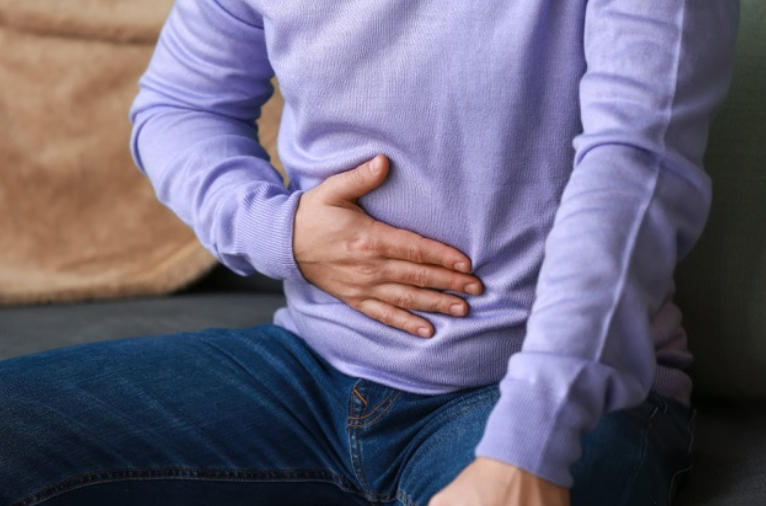Can excessive gas be a sign of something serious
Can excessive gas be a sign of something serious : The digestion of food causes flatulence, which is a completely normal condition. Sometimes you expel gases through the wind and sometimes you expel them through intestinal wind as a result of the activity of the digestive system. Some social situations may cause you to feel uncomfortable when these gases are released.

Flatulence: what is it?
Gas is released from the digestive system through the anus in the case of abdominal flatulence or intestinal flatulence. As a result of digestive gases accumulating in the intestines, this is perfectly normal. During digestion, gas accumulates in the digestive system, usually composed of oxygen, nitrogen, hydrogen, carbon dioxide, and sometimes methane.
Can excessive gas be a sign of something serious : The average person defecates 13 to 21 times per day, according to research. Flatulence is more prevalent in diseases such as irritable bowel syndrome, celiac disease, and gastroparesis. A number of foods can also exacerbate these conditions. A person’s daily activities may be affected by intestinal wind if it causes pain and bloating. Getting rid of flatulence can be achieved by taking medicine, adjusting your diet, and exercising.
FAQ :
How can I reduce flatulence?
There are a few things you can do to cut down on farts that are excessive or smelly
Reduce the size of your meals and eat them more frequently.
Close your mouth while drinking or chewing food.
You can improve your body’s digestion by exercising regularly.
Tea with peppermint is good for you.
What are flatulence symptoms?
It is common to experience passing winds.
Flatulence that smells.
An unpleasant flatulence.
Lower abdominal rumblings.
What food causes flatulence?
Asparagus, broccoli, cabbage, brussel sprouts, and beans are among the green leafy vegetables.
There are also onions, pears, and artichokes, as well as soft drinks, fruit juices, and other fruits.
Foods and drinks containing lactose, such as dairy products, can also cause gas buildup.
Reduce flatulence by following these steps
Flatulence-causing foods should be avoided.
Increase the frequency and size of meals.
Slow down when eating and drinking.
Regular exercise is important.
Flatulence medicine
It may be helpful for gas to pass through your digestive system if you take simethicone (Gas-X, Mylanta Gas Minis, etc.).
What is the fastest way to cure flatulence?
Eat smaller meals, more often.
Drink or chew food slowly, with your mouth closed.
Exercisese regularly to improve how your body digests food.
Drink peppermint tea.
How do you get rid of gas flatulence?
Recording your food intake. By doing this, you will be able to determine which foods cause your body to produce gas.
Diet adjustments.
Smaller, more frequent meals.
Avoiding swallowing too much air.
Water consumption should be increased.
Regular exercise is important.
Probiotics are taken.
Incorporating charcoal pads into the process.
Are probiotics good for flatulence?
Clinical trials have shown that probiotic bacteria such as lactis may reduce flatulence as well as constipation, acid regurgitation, and irregular bowel movements when compared to placebo.
Does drinking water reduce flatulence?
Making a few dietary changes can often relieve gas and bloating. This process can be aided by drinking water, especially purified water. Gas and bloating may be caused by contaminated water containing harmful chemicals or microbial toxins.
Flatulence can be caused by the following factors:
There are two ways in which gas enters the digestive system. The digestive tract accumulates oxygen and nitrogen as a result of swallowing air while eating. In addition, your body produces gases during digestion, such as hydrogen and methane. Flatulence results from both methods.
1. The act of swallowing
Eating and drinking during the day can cause some air to be swallowed. There is usually a small amount of air in this atmosphere. You may experience severe flatulence if you swallow too much air. A bad throat can also result from this. The following reasons may contribute to swallowing too much air:
Sticking gum in your mouth;
Tobacco use;
Dentures with a wide base;
Taking objects such as pen heads by sucking them;
Beverages that contain carbon dioxide;
Too much food or drink is consumed too quickly.
2. Nutrition
You may experience flatulence after eating certain foods. Carbohydrates tend to cause more gas than proteins and fats. The unpleasant smell of flatulence can also be caused by some proteins. Flatulence can be caused by the following foods:
Beans;
Cabbage;
Broccoli;
Asparagus;
Hazelnut cabbage;
Beans;
Lion;
Dairy products;
An onion;
Pear;
Artichoke;
Wheat;
Barley bran;
Pea;
Potato;
Corn;
Raisins;
Lentils;
Plum;
Apple;
Fruit juice or sugar-free candy high in fructose or sorbitol;
A processed food is one that has been processed.
The digestion of these foods takes a long time, causing flatulence. In addition, some foods cannot be absorbed fully by the body. The small intestine does not fully digest these foods before passing them on to the large intestine. Various gases are produced by bacteria in the large intestine as they digest food. Flatulence is caused by the accumulation of these gases. The foods you eat should be taken into consideration because not all foods cause flatulence in all people. The best way to find out what causes flatulence is by doing this.
3. Infections
A medical condition may cause flatulenceou don’t eat a lot of carbohydrates and sugar, and you don’t swallow too much air. Flatulence can be caused by temporary health conditions or chronic digestive diseases. The following are some of these diseases:
Constipation;
Gastroenteritis;
Food intolerances such as lactose;
Irritable Bowel Syndrome;
Crohn’s disease;
Celiac disease;
Diabetes;
Eating disorders;
Ulcerative colitis;
Dumping syndrome;
Gastroesophageal reflux;
Autoimmune pancreatitis;
Ulcers.
For flatulence at home, here are some home remedies
Making simple lifestyle changes can prevent excessive flatulence, such as:
List the foods you eat. By doing this, you will be able to identify foods that cause gas accumulation in your body. You can reduce your flatulence by identifying foods you eat less of or eliminating them from your diet once you identify them.
Make adjustments to your diet. It might be a good idea to switch up your diet if you consume a lot of difficult-to-digest carbohydrates. Rice and bananas are easy to digest and reduce flatulence when consumed.
Consume small, frequent meals. It is easier for your digestive system to digest food if you eat five to six small meals a day instead of three large ones.
Reduce the amount of air you swallow. Reduce the volume of air swallowed by avoiding activities that increase it. By chewing well and avoiding smoking, chewing gum, and drinking with a straw, you will ensure that you get the most out of your food.
Make sure you drink plenty of fluids. You can prevent constipation and flatulence by drinking enough water.
Regular exercise is important. It has been found that exercising improves digestion and reduces flatulence in some people.
Probiotics should be used. Flatulence can be reduced by probiotics like Lactobacillus and Bifidobacterium. Supplements such as multivitamins and probiotics are commonly found in over-the-counter foods such as yogurt and fermented foods.
Charcoal pads should be used. The unpleasant smell of flatulence can be reduced if you wear charcoal underwear.
Take a different stance. Excessive gas can be gotten rid of by sitting straight.
The use of heating pads is recommended. By placing a heating pad or hot water bag on the abdomen, you can reduce abdominal wind-induced pain and cramping.
Digestive health can be improved by eating ginger. Flatulence and flatulence are also reduced with better digestion.
Flatulence can be treated medically in the following ways:
Treatment of flatulence depends on the underlying cause. There are several treatment options available, including:
To reduce flatulence, you can get over-the-counter medications such as bismuth subsalicylate and simethicone.
Medicines prescribed for flatulence include those that treat underlying problems such as IBS or small intestinal bacterial overgrowth. Intestinal flatulence can be reduced by treating these complications.
Lactase is a supplement that can reduce gas produced after you consume dairy products if you are lactose intolerant. Beta-galactosidase is another supplement that reduces flatulence and helps digest beans and vegetables.
You should consult your doctor before adding these drugs and supplements to your diet and make sure they are safe.
Flatulence can cause the following complications:
A person’s health can be negatively affected by severe or constant flatulence, which may cause pain, cramps, bloating, and other uncomfortable symptoms. Mental health problems can also be caused by gas accumulation. Flatulence can cause stress or embarrassment, for instance.
It is possible to reduce the risk of these complications by eliminating flatulence with home remedies, medications, or both. It is good to experiment with different methods and find the one that works best for you. You can also ask your doctor if a build-up of flatulence is causing your symptoms.
To get rid of flatulence, eat these foods:
1. Proteins from animals
Carbohydrates and gut bacteria are not present in animal protein sources. Therefore, you can use animal proteins to prevent gas accumulation or bloating. Sugar, garlic, and onions are all known to cause flatulence when they are used in sauces and stews.
2. Fruits and vegetables
Can excessive gas be a sign of something serious : Other foods are also useful for vegetarians who don’t want to eat animal meat. It is not uncommon for vegetables to cause flatulence because they are low in carbohydrates. Furthermore, these vegetables are very special and should be included in your diet. Some of these vegetables can even be used to make a healthy salad instead of a main meal, including:
Bell pepper;
Chinese cabbage;
Cucumber;
Fennel;
Vegetables such as spinach;
Green beans;
Lettuce;
Tomato;
Zucchini.
3. Fruits
There are many fruits that reduce flatulence production. Consuming them excessively is not recommended. Fruit contains a limited amount of carbohydrates that your body can absorb. Fruits produce little gas, but the more you eat, the more likely you are to produce flatulence. Examples include:
Blueberries (blue raspberry);
Cantaloupe;
Tangerine;
Grape;
Kiwi;
Pineapple;
Barberry;
Strawberry.
4. The fermentation of foods
The bacteria in fermented foods, such as yogurt, have already digested carbohydrates that the gut bacteria should have broken down. Flatulence is reduced since the intestines have less work. Fermented foods contain bacteria that are beneficial to your gut health, including:
Vegetables are fermented;
Kefir
Kabomba;
Yeast.
5. beans
Can excessive gas be a sign of something serious : It may seem strange that some carbohydrates in wheat products cause intestinal gas. The following alternatives can be used instead of these products:
Gluten-free bread;
Rice and bread;
Atmosphere;
Brown or white rice;
Quinoa
Is it a good idea to see a doctor at a certain time?
You should see a doctor if you experience any of the following symptoms along with flatulence:
Abdominal inflammation;
Pain in the abdomen;
Gas in the intestines that is severe and frequent;
Vomiting;
A diarrheal illness;
Irritability;
Loss of weight that is unreasonable;
Reflux of acid;
There is blood in the stool.
There may be an underlying disease causing these symptoms.
source : verywellhealth – webmd


